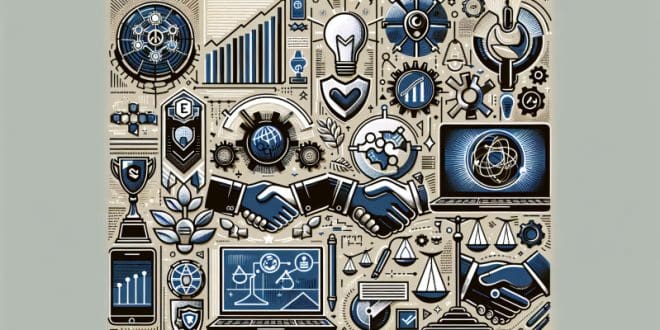In the rapidly evolving world of grantmaking and nonprofit administration, technology has become a cornerstone for success. Nonprofits large and small are turning to innovative tools and platforms to streamline complex processes: from grant application to funds management, reporting, and beyond. As we delve deeper into this digital transformation, it’s essential to maintain a keen awareness of both the opportunities and the ethical implications at play.
In the realm of grant applications, technology has revolutionized the way charities seek funding. Online grant portals and databases, such as Grants.gov and Foundation Directory Online, have made it easier for nonprofit professionals to search for and apply to relevant grants. These platforms are not just expansive repositories; they bring the power of algorithm-based search functionality, making it easier to match organizational needs with potential funding sources.
Furthermore, the advent of cloud-based grant management systems has enhanced efficiency manifold. These systems offer a one-stop solution for tracking grant applications, managing deadlines, and reporting progress. Features like document storage, collaboration tools, and automated reminders are now critical for staying atop the ever-increasing administrative demands. CRM (Customer Relationship Management) systems, which have traditionally been associated with sales and marketing, are now being tailored to meet the nuances of the nonprofit sector, helping organizations to build and maintain relationships with donors, volunteers, and grantors.
Artificial intelligence (AI) and machine learning are also beginning to make inroads into the nonprofit space. With their ability to analyze vast amounts of data, AI-driven tools can help nonprofits identify trends, predict funding opportunities, and even measure the potential impact of their programs. This not only supports more informed decision making but also allows organizations to demonstrate their effectiveness to funders with solid evidence.
However, the increasing reliance on technology raises significant ethical concerns. Data privacy is at the forefront of these discussions. As nonprofits collect and store more personal data than ever before, they must navigate the fine line between leveraging this information for their mission and protecting the privacy of their stakeholders. Compliance with regulations such as GDPR and HIPAA, where applicable, is just the starting point of ensuring trust and security.
Another pressing issue is the digital divide—the gap between those who have ready access to computers and the internet and those who do not. This divide often reflects and exacerbates existing socioeconomic disparities, potentially sidelining small and less-resourced organizations in rural areas or those serving marginalized communities. The digital exclusion of these groups can lead to an uneven playing field, where only those with the necessary technological capacity can compete effectively for grants.
In response to these challenges, the grants community must champion initiatives that promote digital literacy and access. Training workshops, resources, and support networks can empower all organizations to harness technology’s potential. Additionally, funders themselves have a role to play in facilitating equitable access to technology by providing targeted grants or in-kind donations of software and hardware.
Integrating technology into grantmaking processes must be done with a clear eye on equity and ethics. As we marvel at the efficiency and insights that technological innovations bring, we must also commit to ensuring that these advancements serve the greater good and do not inadvertently reinforce existing inequities.
The conversation around the role of technology in the nonprofit space is both complex and dynamic. We invite you to join the dialogue: How can we, as a community, ensure a just and fair integration of technology that upholds the integrity and intent of grantmaking? Share your thoughts and experiences with us, and let’s navigate this digital frontier together, ensuring that advances in technology equate to advances for all in the realm of grant success.
 Grants Club Community
Grants Club Community







